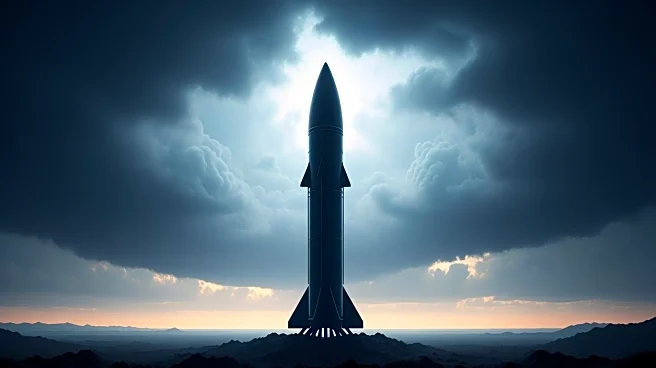What's Happening?
North Korea has unveiled the Hwasong-20, a new nuclear-capable intercontinental ballistic missile (ICBM), at a military parade in Pyongyang. The missile is reportedly capable of reaching the continental United
States and uses solid fuel for quicker launches. The development has raised concerns about North Korea's expanding long-range arsenal and its implications for regional security.
Why It's Important?
North Korea's continued development of nuclear weapons and ICBMs poses a significant threat to regional stability and global security. The missile's capabilities could challenge U.S. and allied missile defenses, prompting increased security cooperation among U.S. allies in Northeast Asia. The situation underscores the ongoing tensions on the Korean Peninsula and the challenges of addressing North Korea's nuclear ambitions.
What's Next?
Analysts expect North Korea to test the Hwasong-20 before the end of 2025, potentially escalating tensions with the U.S. and its allies. The situation may lead to increased diplomatic efforts to address North Korea's nuclear program and prevent further escalation.
Beyond the Headlines
The development raises ethical and legal questions about the proliferation of nuclear weapons and the role of international diplomacy in addressing security threats. It also highlights the cultural and strategic challenges of engaging with North Korea.









